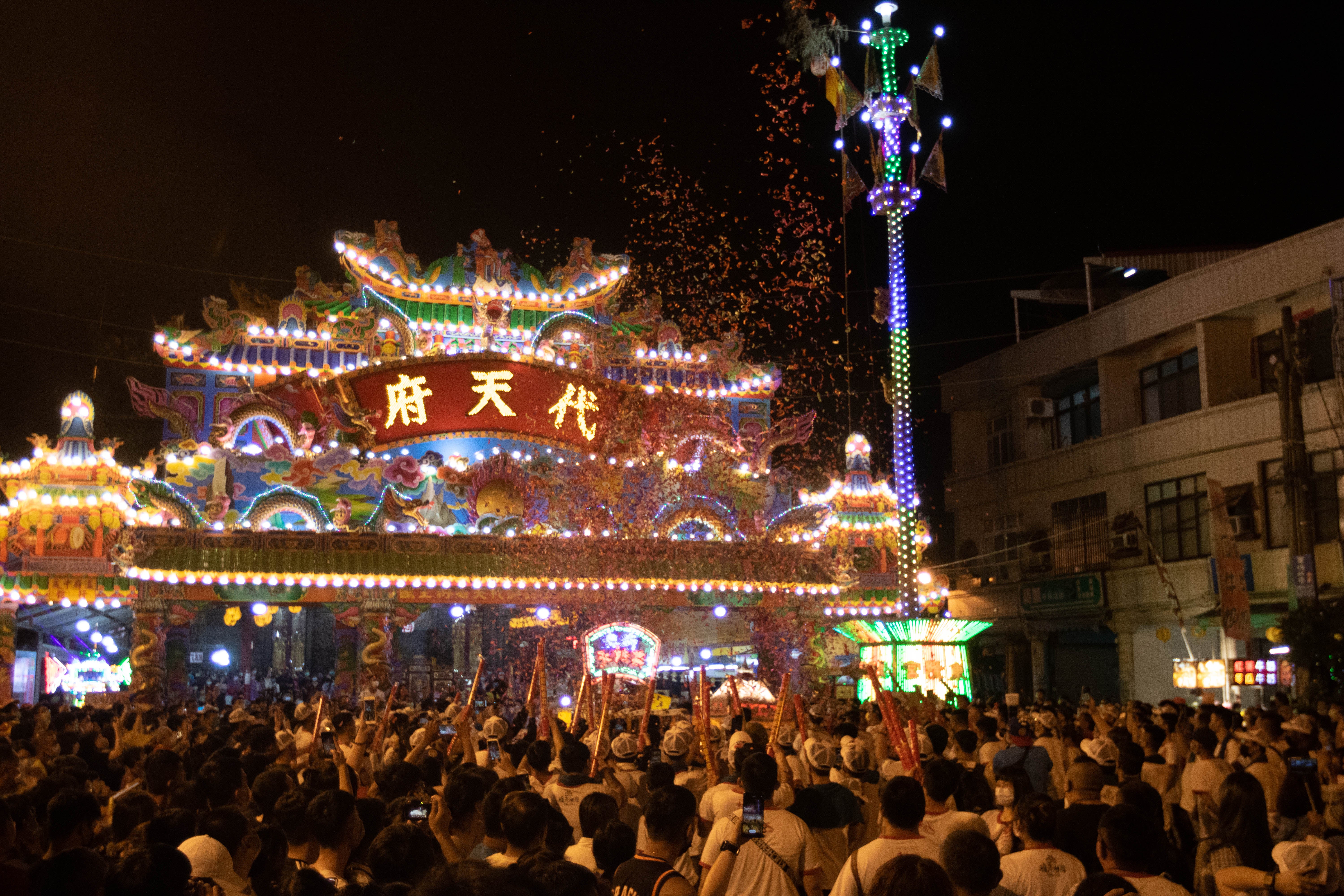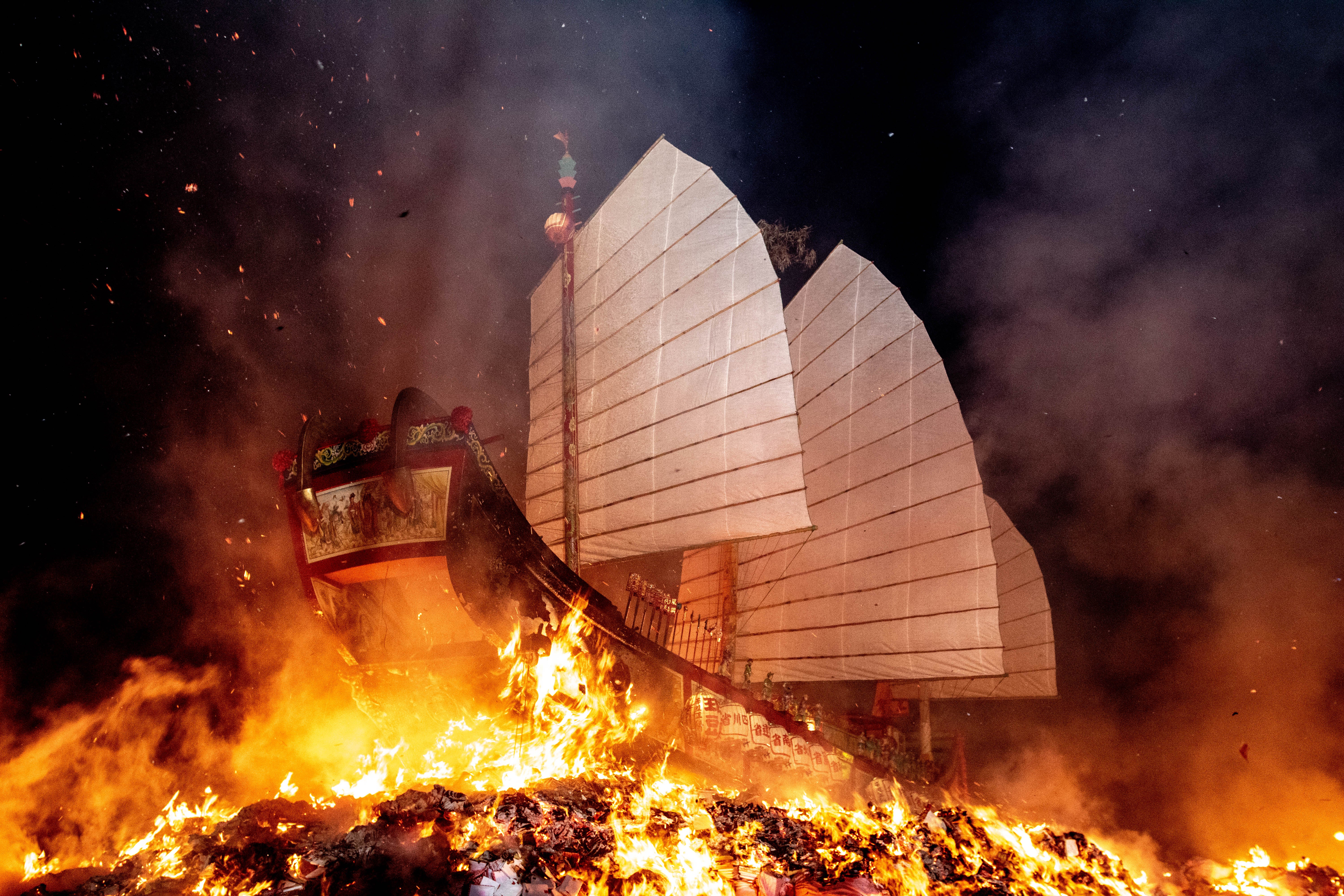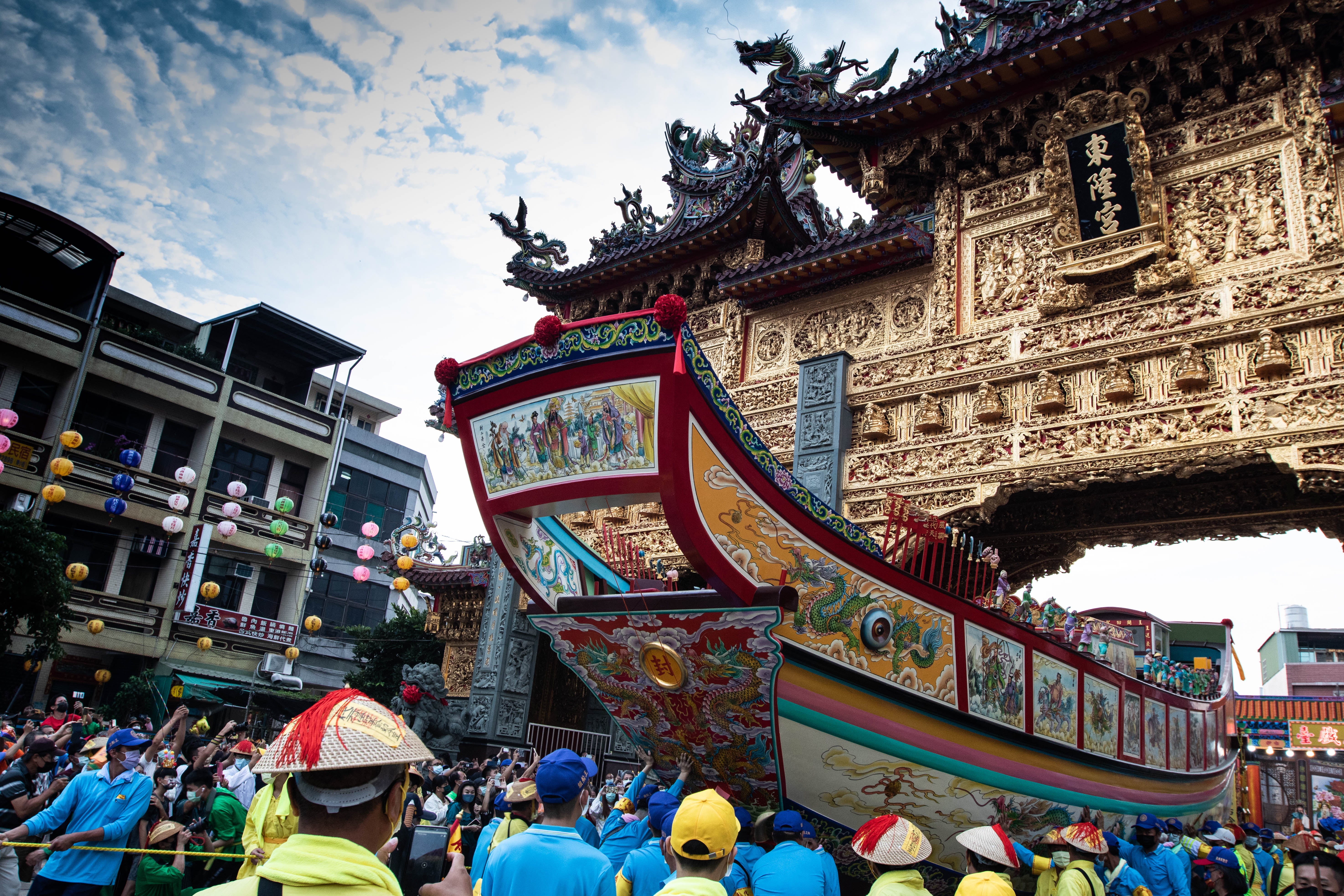Can Taiwan’s burning boats end the pandemic?
The ancient burning boat ritual of Taiwan is said to have protected the island for decades. In 2021, can it stave off Covid-19? Alicia Chen and Lily Kuo report

Your support helps us to tell the story
From reproductive rights to climate change to Big Tech, The Independent is on the ground when the story is developing. Whether it's investigating the financials of Elon Musk's pro-Trump PAC or producing our latest documentary, 'The A Word', which shines a light on the American women fighting for reproductive rights, we know how important it is to parse out the facts from the messaging.
At such a critical moment in US history, we need reporters on the ground. Your donation allows us to keep sending journalists to speak to both sides of the story.
The Independent is trusted by Americans across the entire political spectrum. And unlike many other quality news outlets, we choose not to lock Americans out of our reporting and analysis with paywalls. We believe quality journalism should be available to everyone, paid for by those who can afford it.
Your support makes all the difference.The ancient ritual begins just before dawn. On a beach in southern Taiwan, thousands gather as volunteers hoist a 45ft boat, lavishly painted in gold and red, onto the top of a mountain of joss paper. The crowd watches silently as organisers invite the gods on board. “Prepare to light the firecrackers,” a voice intones over a loudspeaker.
The vessel quickly goes up in flames.
The boat-burning ceremony in Donggang – a traditional Taoist festival that honours guardian deities known as Wang Ye – has protected Taiwan for decades, according to residents. Some say the ceremony helped stave off the worst of the SARS virus in 2003, while others say it has helped scare away typhoons. The Wang Ye are believed to patrol the world every three years hunting disease and evil, and taking them back to heaven.
This year, Wang Ye worshippers hope the ceremony – eight days of religious rites culminating in the burning of a carefully crafted “king boat” – might help end the coronavirus pandemic. For Taiwan, which is just emerging from its worst Covid-19 outbreak so far, the festival represents a return to normal life after months of restrictions.
“I hope the lords will curb the pandemic and make it vanish from sight in Taiwan and the whole world,” says Chang Jung-hui, a 65-year-old Donggang native who has participated in the ceremony since he was in kindergarten.

Taiwan, home to 24 million people, has fared better than many of its neighbours during the pandemic. The island went 253 days without a new case in 2020 before an outbreak this year led to more than 14,000 infections and 823 deaths between May and October, though officials never enforced a full lockdown. Donggang, a fishing hub of 43,000 people, has recorded just three cases in the past year and none in five months, even as the Delta variant spread in surrounding towns. To many, this is evidence that the last boat-burning ceremony, in 2018, worked.
“It is a miracle!” says Lin Yi Chen, 35, one of the volunteers in the ceremony, who is delighted that the event has been able to go ahead. “It’s a sign of the power of the gods.”
More than 30,000 volunteers and onlookers have come to this year’s festival, according to police – fewer than in previous years because of crowd limits. Attendees have travelled from across Taiwan, including fishermen who have returned from months at sea for the festival. Others have taken time off work to attend.

“It’s OK to lose your job, but you cannot miss the ceremony,” says Lin Zhi-long, 48, one of the volunteers.
The Wang Ye boat burning, which honours Song dynasty scholars who were immortalised after their deaths at sea, dates back at least 300 years. In Taiwan, it originated with Chinese immigrants who brought the rituals in hopes of protecting themselves from disease and demons in their new homeland.
This time, the atmosphere is one of joy after months of restrictions on social gatherings. Near the Donglong temple, streets are crammed with stalls selling food and souvenirs. Inside the temple, people light incense and toss divining blocks, seeking answers from the gods. The king boat is paraded through the town to collect disease and bad spirits, and families light firecrackers as the procession passes their homes. Recent graduates, dressed in their gowns, snap photos in front of the boat.

“People are so tired. They are hoping for an event that can inspire them,” says Lin Yi-chen, 35, a public servant who has travelled from Taipei, the capital.
Li Mei-pin, 56, sits next to the temple, packing rice and beans in plastic bags – food for the gods on their quest to hunt disease and evil.
Li, who runs a local fishing business, says she has been praying since May that the ceremony would go ahead, to rid the world of the coronavirus. “I’m hoping that after the boat-burning ritual, everything will be fine,” she says.
Residents caution that the ritual is not without risks. During the boat-burning ceremony, attendees must not turn away, step on the joss paper or make loud noises for fear of inviting bad spirits. Children and pregnant women are advised not to attend.
Waiting on the beach for the ceremony to begin, attendees nap against trees or stand silently. Residents say maintaining the ritual is their duty. “The fire is the best way to eliminate the virus,” says Chen Yi-hong, 54, a photographer from Donggang who has documented the ceremony for a decade.
“In Donggang, every resident has our own celestial mission. We’re all the children of Wang Ye,” he says.
© The Washington Post



Join our commenting forum
Join thought-provoking conversations, follow other Independent readers and see their replies
Comments